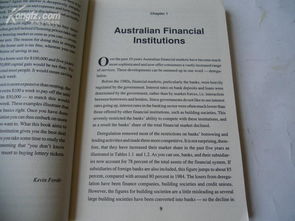How to Make Money on Oil Futures: A Comprehensive Guide
Investing in oil futures can be a lucrative venture, but it requires a thorough understanding of the market and the strategies involved. Whether you’re a seasoned investor or just starting out, this guide will provide you with the knowledge and tools needed to make money on oil futures.
Understanding Oil Futures

Before diving into the strategies, it’s crucial to understand what oil futures are. Oil futures are contracts that allow investors to buy or sell oil at a predetermined price on a specific date in the future. These contracts are traded on commodity exchanges, such as the New York Mercantile Exchange (NYMEX) and the Intercontinental Exchange (ICE).
Oil futures can be divided into two types: crude oil futures and refined product futures. Crude oil futures are based on unrefined oil, while refined product futures are based on products like gasoline, heating oil, and natural gas.
Research and Analysis

Successful oil futures trading begins with thorough research and analysis. Here are some key factors to consider:
-
Supply and demand: Keep an eye on global oil production, consumption, and inventory levels. Factors like geopolitical events, economic growth, and technological advancements can significantly impact supply and demand.
-
Market sentiment: Monitor news and reports that can influence market sentiment, such as OPEC meetings, pipeline disruptions, and weather events.
-
Technical analysis: Use technical indicators and chart patterns to identify trends and potential entry and exit points.
-
Fundamental analysis: Analyze economic data, such as GDP growth, inflation rates, and currency fluctuations, to understand the broader economic environment.
Choosing a Broker and Platform

Selecting the right broker and platform is essential for successful oil futures trading. Here are some factors to consider:
-
Regulation and reputation: Choose a broker that is regulated by a reputable financial authority, such as the Commodity Futures Trading Commission (CFTC) in the United States.
-
Commissions and fees: Compare the fees charged by different brokers, including commissions, spreads, and financing costs.
-
Trading platform: Look for a platform that offers advanced charting tools, real-time data, and customizable trading strategies.
-
Customer support: Ensure the broker provides reliable customer support, including access to a dedicated account manager and educational resources.
Developing a Trading Strategy
A well-defined trading strategy is essential for managing risk and maximizing profits. Here are some common strategies used in oil futures trading:
-
Long positions: Buying oil futures with the expectation that prices will rise. This strategy is suitable when you believe that supply will decrease or demand will increase.
-
Short positions: Selling oil futures with the expectation that prices will fall. This strategy is suitable when you believe that supply will increase or demand will decrease.
-
Spread trading: Simultaneously buying and selling oil futures with different expiration dates or strike prices. This strategy aims to profit from the price difference between the two contracts.
-
Options trading: Using options contracts to hedge your positions or speculate on price movements. Options can provide leverage and limit potential losses.
Managing Risk
Risk management is crucial in oil futures trading. Here are some key risk management techniques:
-
Stop-loss orders: Set a stop-loss order to automatically close your position if the price reaches a predetermined level, limiting potential losses.
-
Position sizing: Determine the appropriate size of your positions based on your risk tolerance and account size.
-
diversification: Spread your investments across different oil futures contracts and other asset classes to reduce risk.
-
Continuous learning: Stay informed about market trends, economic indicators, and trading strategies to improve your decision-making skills.
Monitoring and Adjusting Your Strategy
Market conditions can change rapidly, so it’s essential to monitor your positions and adjust your strategy accordingly. Here are some tips:
-
Regularly review your trades: Assess the performance of your trades and identify areas for improvement.



